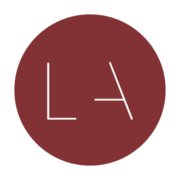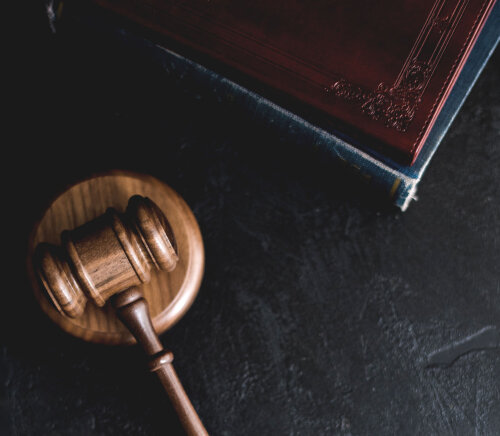Best Debt & Collection Lawyers in Kloof
Share your needs with us, get contacted by law firms.
Free. Takes 2 min.
List of the best lawyers in Kloof, South Africa
About Debt & Collection Law in Kloof, South Africa
The field of Debt & Collection law in Kloof, South Africa, involves the regulation of how debts are collected from individuals or businesses and the rights of both creditors and debtors. This area of law ensures that ethical practices are followed in the recovery of outstanding debts, aligning with both national legislation and local requirements. In Kloof, as in other parts of South Africa, the legal framework aims to balance the interests of creditors in recovering debts and the protection of debtors from unlawful or aggressive collection tactics.
Why You May Need a Lawyer
There are several situations where individuals and businesses in Kloof might need the assistance of a lawyer specializing in Debt & Collection:
- If you are being harassed by debt collectors and require protection against unfair practices.
- When you need to understand your rights and obligations concerning outstanding debts.
- If you are a creditor needing assistance in recovering debts through legal means.
- When negotiating repayment plans or settlements with creditors.
- If you face legal action such as a summons to court due to unpaid debts.
- When you need to explore options like debt review or restructuring.
Local Laws Overview
In Kloof, South Africa, the following key aspects of local laws are crucial in the context of Debt & Collection:
- National Credit Act (NCA): This act regulates the credit industry and protects consumers by promoting responsible lending practices and transparency.
- Prescription Act: This law determines the period within which a creditor can take legal action to recover a debt, typically three years from the date the debt arises.
- Debt Collectors Act: Oversees the conduct of professional debt collectors ensuring ethical practices in debt recovery.
- Protection of Personal Information Act (POPIA): This legislation ensures the confidentiality of debtor information during the debt recovery process.
Frequently Asked Questions
What rights do I have against aggressive debt collection practices?
In South Africa, debt collectors must act in accordance with the Debt Collectors Act, which prohibits harassment or abuse. If a collector engages in such practices, you can lodge a complaint with the Council for Debt Collectors.
How long does a creditor have to collect on a debt?
The Prescription Act generally allows creditors three years to take legal action for debt collection, although specific circumstances can extend this period.
Can I negotiate repayment terms with a creditor?
Yes, many creditors are open to negotiating repayment plans or settlements, especially if you demonstrate willingness and ability to pay consistently.
What happens if I ignore a debt collection notice?
Ignoring a debt collection notice can lead to legal action, which may result in judgments against you or garnishment of wages. It's advisable to address such notices promptly.
Can all debts be included in a debt review?
Most unsecured debts can be included under a debt review. However, secured debts, like a mortgage or vehicle finance, might have specific conditions.
What is a debt review, and how does it help?
Debt review is a debt relief measure under the NCA that helps over-indebted consumers restructure their repayments, offering protection against legal action from creditors.
Is it possible to stop legal action once it has started?
Legal action can sometimes be halted through negotiation with the creditor or through a court order in specific circumstances, but this often requires legal assistance.
How are debt collectors regulated in South Africa?
Debt collectors are regulated by the Debt Collectors Act, which requires them to be registered with the Council for Debt Collectors and adhere to ethical practices.
What fees can a debt collector charge?
Debt collectors can only charge fees as prescribed by the Council for Debt Collectors, which are meant to be reasonable and related to the collection efforts.
Where can I lodge a complaint about a debt collector's conduct?
Complaints about a debt collector can be lodged with the Council for Debt Collectors if they are operating unethically or against legal guidelines.
Additional Resources
For further assistance and information, you may consider the following resources:
- National Credit Regulator (NCR): Provides guidelines on consumer rights under the NCA.
- South African Human Rights Commission (SAHRC): Assists with rights violations, including those in debt collection.
- Legal Aid South Africa: Offers free legal services for qualifying individuals in financial distress.
- Council for Debt Collectors: Monitors and regulates debt collection practices in South Africa.
Next Steps
If you need legal assistance with Debt & Collection in Kloof, consider taking the following steps:
- Consult with a qualified lawyer or a verified debt counselor to discuss your situation.
- Gather relevant documents, including any communications from debt collectors and records of debt owed.
- Explore available legal aid or advice resources if cost is a concern.
- Contact local legal firms specializing in Debt & Collection for detailed guidance tailored to your circumstances.
Being informed and proactive is crucial in effectively managing debt-related issues and ensuring that your rights are protected.
Lawzana helps you find the best lawyers and law firms in Kloof through a curated and pre-screened list of qualified legal professionals. Our platform offers rankings and detailed profiles of attorneys and law firms, allowing you to compare based on practice areas, including Debt & Collection, experience, and client feedback.
Each profile includes a description of the firm's areas of practice, client reviews, team members and partners, year of establishment, spoken languages, office locations, contact information, social media presence, and any published articles or resources. Most firms on our platform speak English and are experienced in both local and international legal matters.
Get a quote from top-rated law firms in Kloof, South Africa — quickly, securely, and without unnecessary hassle.
Disclaimer:
The information provided on this page is for general informational purposes only and does not constitute legal advice. While we strive to ensure the accuracy and relevance of the content, legal information may change over time, and interpretations of the law can vary. You should always consult with a qualified legal professional for advice specific to your situation.
We disclaim all liability for actions taken or not taken based on the content of this page. If you believe any information is incorrect or outdated, please contact us, and we will review and update it where appropriate.









